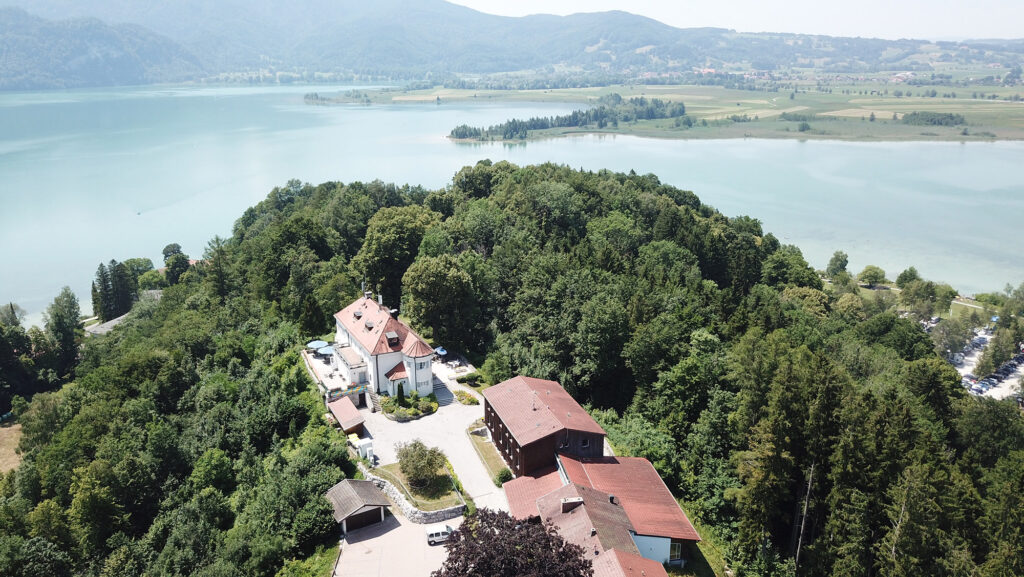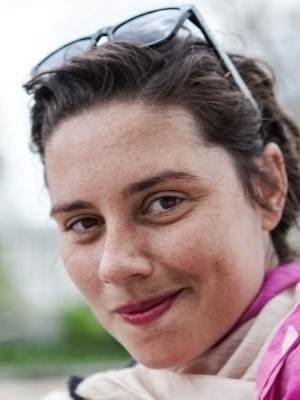Attending an Open Science unconference retreat
Posted on 2 June 2023
Attending an Open Science unconference retreat
 Image credit: Georg-von-Vollmar-Akademie e.V.
Image credit: Georg-von-Vollmar-Akademie e.V.By SSI Fellow Meag Doherty and Harini Lakshminarayanan.
In early April, Heidi Seibold (co-organised with The Center for Advanced Systems Understanding (CASUS)) hosted the event she always wanted to attend: A week full of scientific discussions and reflections, getting work done, making new friends and resetting.
And indeed it was. The Open Science Retreat brought together dozens of open science people gathered at the Georg-von-Vollmar-Akademie Schloss Aspenstein at Kochelsee, a lake 70 kilometres south of Munich.
Prior to the retreat, participants shared their ideas for discussions. On the first day, we spent time getting to know each other and breaking into the groups we would work with throughout the week. The groups broke into the following topics: Education, Team Manual, Large Language Models (LLMs), Software Usability, and Theory of Open Science. Summaries of the discussions are listed below (the summary on Sofware Usability will be published in a separate post).
An Open Science Curriculum
The Open Science Education Working Group created a syllabus intended to be used to implement Open Science into formal education. We realised that there are no structured open science courses currently included in degree programs at higher education institutions. The primary learning objectives of this course include introducing participants to the pillars of open science, enabling them to bring about culture change towards the adoption of open science, and empowering them to develop a roadmap to implement change towards open practises in their work environment. The syllabus is publically available on Zenodo for interested institutions to adopt into their course curriculum. Head to our website now: http://openscienceeducation.org/
Participants: Eduarda, Harini, Jens, Joyce, Neasa, and Rachel
Guides for Drafting Inclusive Team Manuals
The Team Manual group wanted to gather some questions to address in order to create an inclusive environment for your team. Thanks to amazing leadership and project management by Esther, Shreya created her first pull request to the Turing Way and Adina and Danny did some amazing bug fixing that saved the day!
Participants: Esther, Danny, Shreya, Wino, Adina and Melanie
Using LLMs in Open Science
In this group, we investigated the current state of LLMs and how they can be used in research, with a focus on Open Science. We found that the technology is already very helpful at several stages: literature research, assessment of code and written content, generating text from bullet points, refining, translating and transforming text, producing and critiquing code, etc. However, there are reasons for caution: LLMs are complex neural networks and, as such, quite inscrutable machines. Further, the current state-of-the-art models are not documented as scientific artefacts. Third, they require a humongous amount of computation and fourth - they are liable to hallucinate answers - sometimes quite close scrutiny is required to separate truth from hallucination. We enjoyed interacting with LLMs, and all of us found new scenarios for their application. Ultimately, we believe these tools will help us, but we are unsure about the consequences of mass deployment on the practice of science or society at large.
Participants: Maroussia, Karan, Lukas, Finn, Quirin and Álvaro.
Theory of Open Science
Open Science means a broad reform that impacts almost every aspect of scientific practice. It is often defined either in abstract terms by discussing values and visions, or in very concrete practices and standards, for example about data collection, analysis or writing. In our group, we started to work on an overarching model that aims to map the diversity of scientific practices and their products while remaining comprehensible and illustrative. We hope that such a model can help researchers, lab managers and science funders alike to navigate the overwhelming amount of initiatives that facilitate the shift towards Open Science. As a group, we enjoyed a fruitful discussion of the theoretical aspects of Open Science and started to collaboratively work on our own way to sense the many things that will change in the future.
Participants: Maxence, Ines & Inês, Tom, Shreya, Monica and Alex.
Bonus topic: Open Science and Science Policy
The best part of an unconference is the flexibility and encouragement to organise discussions outside of the main breakouts.
One afternoon, a few of us sat down under the sun with the beautiful views of the Bavarian Alps to discuss the what, how and why of science policy. This conversation sparked after a few of us ECRs realised we were interested in working with open science policy but were not aware of how to find entryways into this area. The bottom line of the discussion was to reach out to the library staff at our respective universities as they are usually the most effective point of contact for influencing open science policy.
While it may seem rather intimidating to find events and activities to enter the policy-making process and influence direction, Meag and Mel suggested having conversations with relevant people about possible opportunities for contributing to open science and science policy. Science policy at the organisational/governmental/international level was another topic we discussed.
Some resources that were discussed:
- European Open Science Cloud
- Open Heroines
- S4D4C
- American Association of the Advancement of Science
- Science Europe
- International Network of Open Science & Scholarship Communities
The resetting part
In addition to deep discussions about challenges in Open Science, participants also enjoyed personalised career coaching (based on a unique approach called Skills Weaving), hiking, running, slide karaoke, and yoga. A few brave people even jumped in the cold lake!
And while the concept of a conference plus relaxing retreat is still rare, there are a few upcoming relevant events you might enjoy:
- Open Science Festival, 4-5 July, Cologne, Germany
- National Open Science Festival, 31 August, Rotterdam, Netherlands

